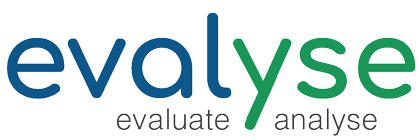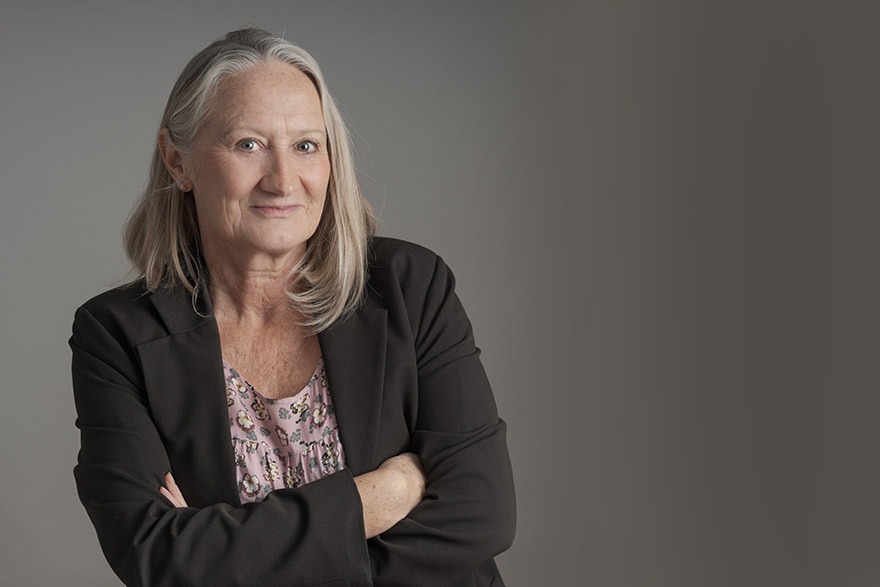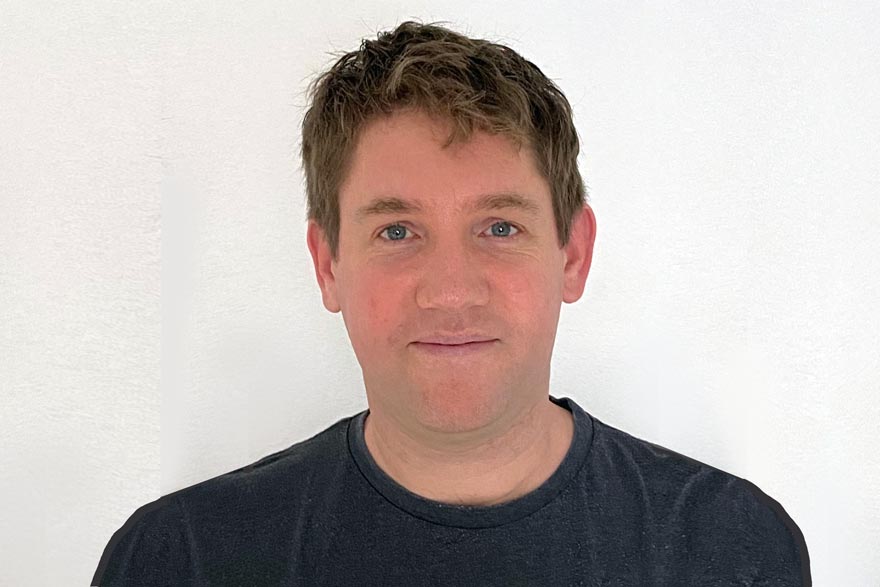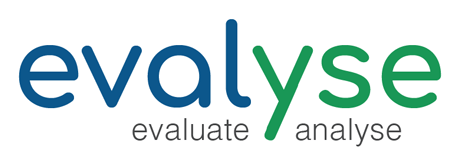independent | engaged | practical
Welcome to evalyse
Evaluations and socio-economic analyses
evalyse combines evaluations with socio-economic analyses; the name says it all.
Whether for literature research, data research, ex-ante or ex-post evaluation, case studies, peer reviews, or impact assessments, we take you and the setting for your undertaking into account in all of our studies. We establish a definition of the position, consider the economic benefits and risks to people, the environment and society, and present possible courses of action. We work with qualitative and quantitative social research methods. Our work is practical, our recommendations are based on what is feasible. Whatever we do, it should be appropriate, comprehensible and have value.
evalyse is a network of social scientists, economists and experts in a wide range of subjects. We work on a project basis and across disciplines, think and act – in multiple senses of the word – internationally and have a European network.
Evaluation
Socio-economic analysis
Consulting & training
Overview
Evaluations and monitoring
Do you know the benefits of the measures you have enacted? Do you want or need to have third parties carry out neutral analysis of your initiative or your project?
We conduct feasibility studies, ex-ante, ex-post, project or programme evaluations and accompanying research. We make use of existing data for this or collect it during the course of the evaluation. We thus settle the question of whether and to what extent a measure, a project or a programme appears suitable for fulfilling the aim you have in mind. We provide monitoring support and review whether the “observation object” is moving in the desired direction at regular intervals.
Socio-economic analyses
Have you optimised your work processes, streamlined your institute, your administrative unit or your company in line with the times, but things still aren’t running smoothly?
We can help you with this problem. We use publicly available statistics and administrative information about your undertaking for comparative purposes here. We generate new data as required, through employee surveys or expert discussion, for example. We thus uncover the existing potential, social relationships and economic conditions that can support you in the further development of your projects.
Consulting and training
Are you facing a mountain of data with a multitude of tables that you don’t really know how to interpret? Are you asking yourself what indicators you should use to measure “progress”?
We evaluate your data with a view to the desired question, establish indicators, and generate graphics or presentations. We clarify empirical and statistical terms during the course of workshops, training courses and private instruction. We provide support for coordination of a programme, help with project reporting or communication of results, and stand ready to answer your scientific project management questions.
Projects
Examples of projects that members of the present evalyse network have played a part in are set out below. They demonstrate the diversity of work and expertise.
Evaluation of active labour market measures: the training network
Task
Two thirds of young people in Switzerland opt for basic vocational training; it is a mainstay of the Swiss economy. Not all companies want to or are able to offer comprehensive vocational training. In this case, host company networks can ensure the training of apprentices through cross-company collaboration. This model was supported by start-up financing in Switzer-land; the training processes and experienc-es of host company networks therefore had to be evaluated and success factors had to be determined. A central question here is how training and supervision can be organ-ised and ensured.
Solution
Three training networks in different industries were selected. Expert interviews were conducted with the persons receiving training at the participating companies. They were also involved in the selection of the apprentices who formed the focus groups and discussions of the quality of training and possible areas for improvement were conducted. They formed the basis for the development of a survey to be completed by the apprentices in the various training networks. This survey could be used to increase the available data. The mix of different methods improved the understanding of the challenges of training in a network.
OECD Social Capital Measurement Initiative: country report for Switzerland / definition of the position
Task
social capital for the societal and economic development of a country have been ongo-ing for some 25 years. Defining social capi-tal is far from easy, and measuring it is even less so. In general, the effect of some-thing that cannot be measured also cannot the reviewed (well). The OECD therefore launched an initiative, at the beginning of the 2000s, to define and measure social capital. It reached out to the national statis-tical institutes with the task of reviewing the data situation and (through collabora-tion) developing a measuring instrument.
Solution
First came literature research. Then exist-ing surveys were identified, the data situa-tion and approaches for further develop-ment were set out. The task, which mem-bers of the present evalyse network collab-orated on, ended with a country report. However, the OECD established a database of survey modules and supported the devel-opment of a social capital index. Such defi-nitions of the position are essential if you want to initiate a change process. This ap-plies equally for societal developments, political initiatives, for public institutions and private companies.
Facts and figures: lecture series
Task
Data and statistical information are essen-tial for objective, scientifically supported analysis of current problem areas. Nowa-days, a wealth of data is generated, some-times even as a by-product. Scarcely an advert or a political argument gets by with-out a statistical figure or graphic. What is frequently missing is critical scrutiny of the data source and knowledge of the data quality. Binding quality criteria apply for data collected and used by the public au-thorities. But what does “representativity” (for example) mean? What do figures – averages, growth rates, indicators, correla-tions, trends, forecasts – actually reveal?
Solution
An introduction to research and the use of public statistics data: modularly organised into a lecture series, the key conceptual and methodological approaches which form the basis for data collection and data bodies in public statistics are taught. Terms such as “representativity” and quality criteria for a survey or a data set are explained. Social developments can be interpreted better through understanding of the possibilities, as well as the limits, of statistical state-ments. In short: this is a “first aid course” for life in the data jungle of our information society.
team
evalyse is a platform and a network of social scientists, economists and experts in a wide range of sub-jects. We have worked in politics, economics, associations, public administration and scientific institutions, and in some cases still do. We therefore work on a project basis in a variety of con-figurations and with differing work intensity. We have expertise in and deal with issues in the fields of education and university, the labour market and structural policy, agricultural science and rural development, health policy and economics, and in project and public management. We meet regularly for discussion, undergo continuous professional development and therefore guar-antee appropriate, scientific advice.
Describe your problem, tell us your concerns and we will work with you to develop a solution.
„We cannot direct the wind but we can adjust the sails“.
This quote doesn’t come from me, but it is a guiding principle. We cannot change “the wind that blows against us”, but we can “adjust the sails” in order to change the circumstances for our benefit.
- Studied social sciences at the Carl von Ossietzky University of Oldenburg with doctorate (1993)
- Masters in Advanced European Studies at the University of Basel, Europe Institute (1996)
- Various professional education, including management and leadership courses, and
CAS in Public Management (2015) and CAS in Evaluation (2018) - 30 years of professional experience with engagements in the Swiss Federal Administration, at the statistical office of the EU (Eurostat) and at research institutes in Germany and the UK.
“Feel the fear and do it anyway”,
Susan Jeffers, a well-known American psychologist, once recommended. This principle helps me to analyse and break through a seemingly predetermined setting.
- Master’s in Economics and in Social Statistics and the Universities of Milan (1995) and Southampton (2000).
- Program in Analytics and Statistical Studies (PASS) in Biostatistics,
The Institute for Statistics Education, USA (2023) - Continuing education in soft, management and consulting skills, statistical software and didactics.
- 30 years of professional experience in data collection, analysis, visualisation and publication as well as in project management (with certification), for both the private and the public sector.
- Lecturer and project consultant in Statistics, Probability and Data Analysis at a Swiss University of Applied Sciences (since 2018).
Professional background
CV (available in German only)
“Somewhere, something incredible is waiting to be known” (Carl Sagan).
If we explore with enthusiasm, curiosity and openness, we have a good chance of discovering new things, deepening our understanding and finding innovative solutions.
- Licentiate in Psychology (2008) and PhD in Social Sciences (2019) at the University of Lausanne
- Various further training courses in statistical methods, machine learning and programming with R, Python and SAS
- Around 15 years of professional experience at the Swiss Federal Statistical Office and at the Universities of Geneva and of Lausanne
We look forward to hearing from you
Get in touch for a non-binding discussion. We are also happy to organise a video call.
We look forward to getting to know you and your concerns.





